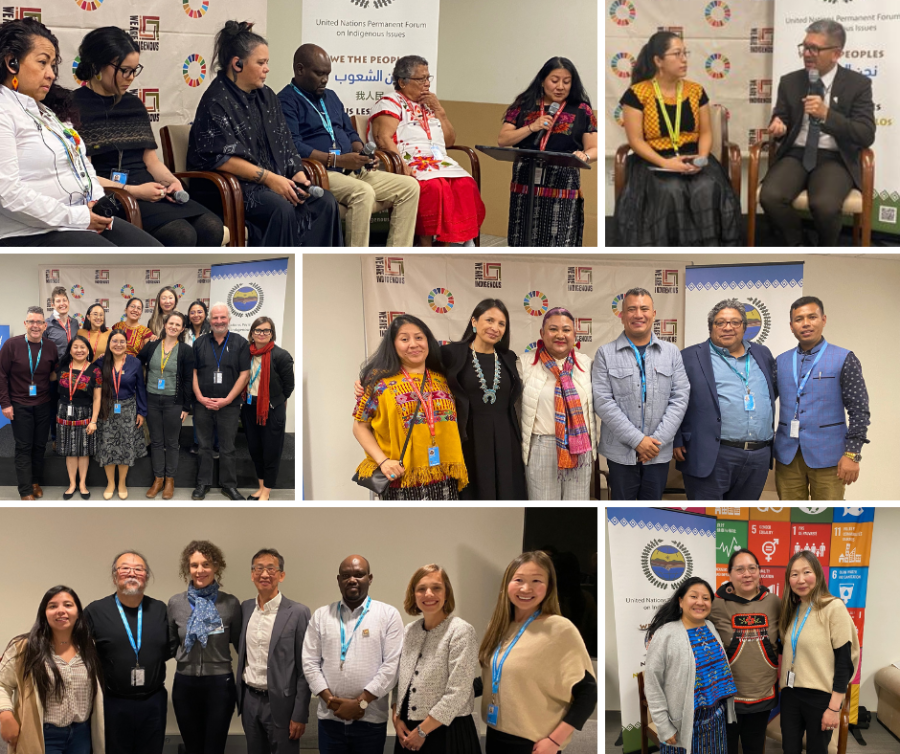
By Secretariat of the Permanent Forum on Indigenous Issues
NEW YORK (25 September 2015) – A preeminent expert body of the United Nations on indigenous peoples, the Permanent Forum on Indigenous Issues, welcomed the adoption of the 2030 Agenda for Sustainable Development by the UN General Assembly today.
The transformative Agenda lays out the global goals for reducing poverty, in all its dimensions, over the next decade and a half. “From the least developed countries to the most developed countries, the inequalities faced by indigenous peoples are staggering”, says Professor Megan Davis, Chairperson of the Permanent Forum.
There are six specific references to indigenous peoples in the Agenda. “These constitute a step up from the Millennium Development Goals, which had no references to indigenous peoples”, points out Permanent Forum member Joan Carling.
Yet “States and the UN system must be ambitious, and go beyond the points mentioned in this text to bring indigenous peoples into the achievement of goals and targets – for the 2030 Agenda to be truly inclusive”, she continued.
The Declaration on the Rights of Indigenous Peoples provides a framework for the rights and development priorities of indigenous peoples.
In particular, “indigenous peoples’ rights to their traditional lands, territories and resources have to be secured as the fundamental basis for their economic development and foundation of their lives, livelihoods and cultures”, states the Chairperson, Professor Davis.
Indigenous peoples have much to teach the world about living sustainably: “Let us learn from the extensive knowledge systems of indigenous peoples, developed over many centuries, as we move forward to meet the goals of the 2030 Agenda to combat climate change, to sustainably manage forests and to halt biodiversity loss”, continues Professor Davis.
It is also important to keep track of progress in meeting the goals and targets for indigenous peoples through the development of culturally relevant indicators and disaggregation of data.
The Agenda states that the functional commissions of the Economic and Social Council and other intergovernmental bodies and forums will support the thematic review of progress on the Sustainable Development Goals (paragraph 85).
“In this regard, the Permanent Forum will have an important role to play in achieving the goals and targets of the Agenda for indigenous peoples", notes Ms. Carling.
“Indigenous peoples look forward to being part of this exciting journey, so it can truly transform our world and bring peace and prosperity for all. This is a priority task to which the Permanent Forum remains committed”, says Professor Davis, Chairperson of the Forum.
Secretariat of the Permanent Forum on Indigenous Issues
www.un.org/indigenous
indigenous_un@un.org
UNITED NATIONS HEADQUARTERS
S-2954


